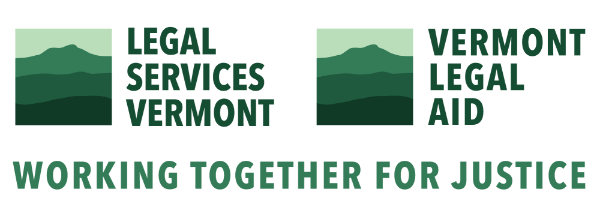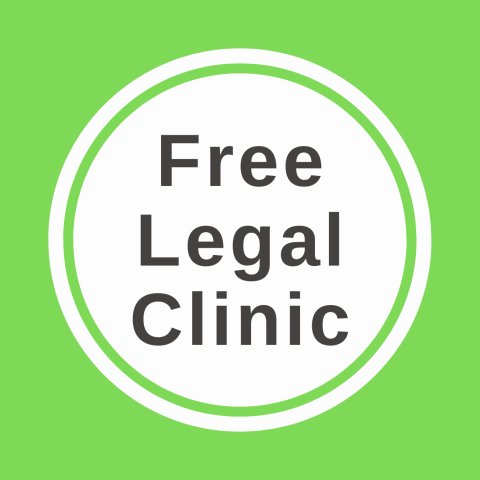Vermont law protects some property and income from being taken by courts or by creditors trying to collect a debt. These are called “exemption laws.” Exemption laws let you keep property and income that you need to support yourself and your family. That property and income is called “exempt.” A court or creditor cannot take your exempt property or force you to sell it. A court or creditor cannot make you pay a debt with exempt income.
At the end of this web page is a list of exempt property, income and assets from the Vermont Superior Court. This page helps you figure out how much of your income or property can be exempt. It also explains how to tell the court and creditors about your exempt income or property.
Court judgments
If you are sued, the court might make a court order that says you owe the money. This is called a “judgment.” But the judgment does not automatically mean you have to make payments. If your income and property is exempt, you do not have to make payments on the judgment. However, the judgment will continue to gain interest and if your financial circumstances improve, you may have to pay on the judgment in the future.
How do I determine the value of my “interest” in my property?
Most exemptions apply to your “interest” in property, which may be less than the value of the property itself. For example, if you own a car, your interest is equal to the value of your car minus the amount you owe the bank for your car loan. If you own only part of the property, your interest in the property is how much your part is worth.
To figure out the amount of exemption you qualify for, use your best estimate of what you would get for the property if you sold it right now in the condition it is in. For a car or truck, you may refer to the current “NADA” or “Blue Book” value. For a house, a realtor may be able to tell you what it would sell for.
Example: You own a truck with one other person. The Blue Book value of the truck is $6,000. You owe the bank $2,000 on the truck loan.
Your “interest” in the truck = ($6,000 – $2,000) divided by 2 = $4,000 / 2 = $2,000
See the list of exemptions in Vermont at the end of this information. The law says you can keep the truck because it is less than the limit for motor vehicles.
What about my home?
Vermont has a “homestead exemption” which may protect your home and the land attached to it if you are sued. The exemption protects $125,000 of the equity value of your home from collection in a lawsuit. “Equity” is the assessed value of your home minus how much you owe on any mortgages or other debts that use the home as collateral. If you have less than this amount of equity in your home, a creditor (except your mortgage company) cannot take your home. If your mortgage company is the one suing you, see our information on foreclosures in Vermont.
Example: You own a home that is now worth $180,000. You still owe $100,000 on your mortgage.
Your equity in your home = $180,000 – $100,000 = $80,000
Because this is less than the $125,000 limit, the creditor cannot take your home. (Remember, your mortgage company may be able to take your home.)
Other types of real estate, such as land without a home on it, or a home other than the one you use as a primary residence, are not covered by the homestead exemption.
If you are married and own the home with your spouse, a creditor can only try to take your home for a debt that both of you owe (such as a credit card agreement or car loan you both signed as the borrower). This is true even if you and your spouse have more than $125,000 in equity in the home.
Can I go to jail for owing money?
No. Vermont law says that people cannot be sent to jail for owing debts. If you cannot afford to pay, you must show the judge that you can’t afford to pay.
If you have heard of someone being arrested or ending up in jail in a debt collection lawsuit, it was probably not just because they owed money. It is probably because they broke some other court rule or requirement. It may have been that they got legal paperwork called “Financial Disclosure” or “Interrogatories” that had questions they had to answer, and they didn't answer the questions. If that happens, the court will sometimes issue an arrest warrant. When this happens, you can avoid jail and the problem can be worked out by answering the required questions.
Another way someone can end up going to jail is for contempt of court. Contempt of court is when you are able to follow a court order, but you don’t follow it. It you can’t follow a court order to pay because you don’t have the money or your income is exempt, then you must explain this to the judge and it should not count as contempt of court. It is illegal for a debt collector to threaten to send you to jail if you cannot actually be sent to jail at that time. Debt collectors sometimes make illegal and false threats about sending someone to jail.
How do I tell the court and creditor that my property or income is exempt?
Voluntary Payment Agreement: When you are served with a Complaint, you are asked to agree to repay your debt. You do not have to agree to this. You have the right to disagree with the Complaint and refuse to make payments from your exempt income or exempt property. Submit an Answer to the court and the creditor’s lawyer, and include a Disclosure of Exempt Income or Financial Disclosure Affidavit to let the court and the creditor’s lawyer know about your exempt income and property. See our page on how to defend yourself in court.
Small Claims Disclosure Hearing: If there is a judgment against you and the court tells you to appear at a disclosure hearing, you must go to the hearing. Tell the judge about what income and property you claim as exempt. The judge will decide whether you must pay with your nonexempt income or other assets you have.
Motion for Trustee Process Against Earnings: If there is a judgment against you, the creditor may try to get your employer to take money out of your paycheck to pay them back. If this happens, you will get a notice to appear at a hearing on a Motion for Trustee Process Against Earnings. You must go to this hearing and ask the judge to consider your claims for exemptions.
Writ of Attachment: A writ of attachment is a paper issued by the court that orders the seizure and sale of your property to pay a debt. If you are served with a writ of attachment, you have a right to claim the property exemptions at a hearing. If you are not notified of a hearing date when you get a writ of attachment, you must write to the court and ask for an immediate hearing to stop them from taking your exempt property.
Foreclosing on a Judgment Lien Against Your Home: If a creditor has a judgment against you for an unpaid debt, the creditor can try to take your home. This is called “foreclosing on a judgment lien.” The $125,000 homestead exemption applies to protect your home. See “What about my home?” above for more information about the homestead exemption. If a creditor serves you with a foreclosure complaint and summons, they are trying to take your home. You can claim the homestead exemption when you file an “Answer” with the court. However, keep in mind that the homestead exemption does not apply to a bank or financial institution that holds a mortgage on your property. This includes the bank you gave a mortgage deed to when you took out the loan to buy your home. For more information on your rights in a foreclosure case, see our information on foreclosures in Vermont.
What if I still have questions?
Contact us if you have questions about how exempt property, income or assets apply to your situation, or how to deal with a creditor. Fill out our form and we will call you back. Your information will be sent to Legal Services Vermont. You can also call us at 1-800-889-2047.
Vermont Superior Court Civil Division List of Exemptions
www.vermontjudiciary.org
The following is a list of some of the most common kinds of income and property of a debtor that a court cannot order taken in order to satisfy a judgment. This list contains only the more common exemptions, not a complete list of all potential exemptions. For more information, see 12 V.S.A. § 2740 or contact an attorney.
- All Income from any source is exempt if a debtor has received any benefits in the past 2 months from the Vermont Department for Children and Families (DCF), such as Reach up, General Assistance, Supplemental Nutrition Assistance Program (SNAP or Food Stamps), Fuel Assistance or Childcare Subsidies; or from the Department of Vermont Health Access, such as Medicaid, VPharm, or Dr. Dynasaur (12 V.S.A. § 3170).
- All Income and all Property is exempt if it comes from or is “traceable” to:
- The Social Security Administration (42 U.S.C. § 407, 42 USC 1383 and 27 VSA 2740(19).
- Veteran’s Benefits (38 U.S.C. § 5301).
- Workers’ Compensation Benefits (21 V.S.A. § 687).
- Alimony, support or separate maintenance; (12 V.S.A. § 2740(19D)).
- Disability or Retirement pension payments. (12 V.S.A. § 2740(19J)).
- Other sources protected under 12 V.S.A. § 2740(19).
- All or Part of Wages may be exempt:
- If weekly wages, before taxes, are less than $217.50, they are exempt from collection. If weekly wages are more than that, 75% of take home pay is exempt from collection. (12 V.S.A. 3170)
- If the debt is about a credit card or loan, then weekly wages less than $290 are exempt from collection. If wages are more than that, 85% of take home pay is exempt from collection. (12 V.S.A. 3170)
- Insurance or disability payments are exempt. (8 V.S.A. §§ 3706-3709, 4478; 12 V.S.A. § 3020).
- Assets, the following assets are exempt from attachment or seizure:
- Cash up to $700 in cash or bank deposits (12 V.S.A. § 2740 (15)).
- Deposits in bank accounts that receive money from Social Security Administration (31 C.F.R. 212).
- Primary Home up to a limit of $125,000 in value (27 V.S.A. § 101).
- Motor Vehicle(s) up to $2,500 in value (12 V.S.A. § 2740(1)).
- Professional Tools and books up to $5,000 (12 V.S.A. § 2740(2)).
- Overall Exemption: If you have not already claimed $7,000 in exemptions in other categories, then you may claim up to that amount, plus an additional $400 to protect other property you own. (12 V.S.A. § 2740(7)).
- Retirement Assets
- Pension Benefits including various federal pension benefits (29 U.S.C. § 1056(d); 45 U.S.C. § 231(m); 5 U.S.C. § 8346).
- Retirement Accounts including payments under annuity policies or plans, and individual tax-deductible retirement accounts, Keogh plans, and Roth IRA’s. (12 V.S.A. § 2740 (16)).
- All Other Exemptions set forth in Title 12 § 2740.
Source: Vermont Judiciary 100-00511 - List of Exemptions
PDF version of this information
Our PDF file does not fully comply with all applicable guidelines for accessible digital documents. For the most accessible experience, see the text above. Download the PDF of How to Protect Your Income and Property.

